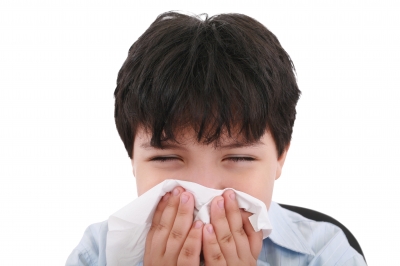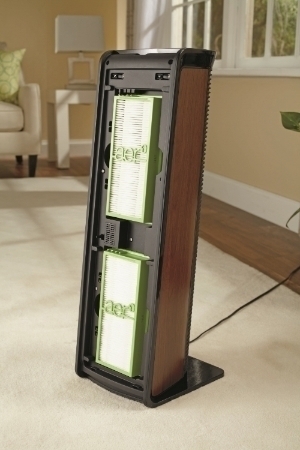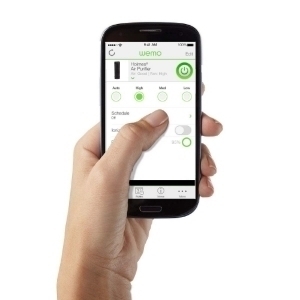This is a sponsored post written by me on behalf of Holmes Products. All opinions are 100% mine.
 Do you or your children suffer from indoor or outdoor allergens? According to Kid’s Health, up to 50 million Americans including kids suffer from allergies including indoor, outdoor, food, and drugs. Many people treat their allergies using over the counter medications and home remedies before they consider going to the doctor. As with any other illness, allergies are even responsible for loss of productivity and abscesses from school and work. For example, if your child has to stay at home because they are sick, as a parent you more than likely have to take off of work to take care of your child and take them to the doctor unless you are lucky and have someone who can take care of them while you work.
Do you or your children suffer from indoor or outdoor allergens? According to Kid’s Health, up to 50 million Americans including kids suffer from allergies including indoor, outdoor, food, and drugs. Many people treat their allergies using over the counter medications and home remedies before they consider going to the doctor. As with any other illness, allergies are even responsible for loss of productivity and abscesses from school and work. For example, if your child has to stay at home because they are sick, as a parent you more than likely have to take off of work to take care of your child and take them to the doctor unless you are lucky and have someone who can take care of them while you work.
Disclosure: This post is for informational purposes only. If you or your child suffers from indoor or outdoor allergens, please consult your doctor or health care professional.
What is an Allergy?
An allergy is a response from your immune system to a substance. The substance sets off a chain reaction and causes your body to treat the allergen as a foreign object or invader. It causes your immune system to react to the allergen and creates symptoms that range from mild to life threatening. The immune system produces antibodies. Antibodies are created to tell the mast cells and basophils to release chemicals including histimines to attack against the allergens. This causes the allergic reaction in your nose, throat, eyes, lungs, skin, or GI tract to get rid of the allergen. Each time your body is exposed to the same allergen your body will continue to have an allergic reaction to the allergen.
Here is a list of common allergy symptoms:
- sneezing
- watery eyes
- itchy eyes
- itchy throat
- congestion
- sinus pain
- fatigue
- wheezing
- coughing
If you have an allergy attack, you should always treat the attack so that it doesn’t cause serious problems. Allergies are heredity so if you have allergies, your children will likely have allergies too.
Common Allergy Triggers
Many people are allergic to the following allergens:
- Pets – Warm blooded animals can cause allergy problems in adults and children. Pet dander and saliva is usually responsible for causing problems. They shed tiny flakes of skin and fur. As your animal cleans itself with their tongue/saliva , the protein in their saliva dries into their fur and gets into the fabrics in your home. Plus, they go outside and roll in the grass, dirt, and weeds and track those allergens back into the house. If your pet has ever had an accident in your home, the urine needs to be cleaned up or it will become airborne.
- Cockroaches – Many people don’t want to admit that they have a problem with cockroaches because their is a stigma that their house is dirty. However, even the cleanest homes can get a roach infestation. Cockroaches shed or excretes proteins that trigger allergy symptoms. If you have a cockroach problem, you should contact a licensed professional to help take care of your infestation.
- Dust Mites – This is the most common culprit of most indoor allergens. Dust mites are small microscopic insects that live among us. They feed off our dead skin cells that fall off our bodies. They live in your bedding, upholstery, and in your carpets. If you suffer from indoor allergens, you should wash your bedding frequently to help reduce the amount of dust mites living around you. If you have severe allergies or asthma, if possible you should rip out the carpet in your home and encase all of your mattresses.
- Pollen – This is another common culprit for most people and it is often referred to as hayfever. These allergens are caused by trees, weeds, and grasses that release tiny particles into the air. These particles are responsible for fertilizing other plants. Depending on where you live, these outdoor allergens can be seasonal or year-round. You can find out what the local pollen counts are on the news or by going to The Weather Channel Allergy Center.
- Mold – This is another popular culprit for most people. Fungi can live both indoors and outdoors in warm moist areas. If you are allergic to mold, you should check your bathrooms, under the sinks in the kitchen and bathrooms, clothes hamper (especially if you toss in wet clothes and let them set for a few days), laundry room, and basements. Immediately clean up any mold growth and call in a professional for large areas of mold. Check around the outside of your home and clean up any mold growth. You can find mold outside where you have poor drainage, around your a/c drain, compost piles, and rotting leaves or grass on the lawn.
- Food Allergens – There are several foods that can cause allergy attacks. These foods include: cow’s milk, eggs, fish, shellfish, peanuts, tree nuts, soy, and wheat. Depending on the allergen you are allergic to, you can eliminate these products from your child’s diet.
Preventing Allergens
Antihistamines
Antihistamines can help prevent or treat your allergy symptoms. These medicines help by blocking the histamine. There are different antihistamines on the market and have a wide variety of side effects. Some common medications that are used to treat allergies are:
- Benadryl
- Claritin
- Zyertec
- Actifed
- Allegra
- Plus many others that are prescribed by your Doctor
Some of the know side effects depending on the drug you are taking is: drowsiness, dry mouth, blurred vision, dizziness, and many more. Read the side effects listed on the medication bottle for more information about the side effects for the drug that you are currently taking.
Air Purifiers
 Air purifiers can serve as a first line of defense for anyone who is suffering from asthma, allergies, or other respiratory ailments. They can help allergy suffers by cleaning the air that is around them. An air purifier can hep remove the airborne mirco particles from the air that cause so much discomfort. Most of them help allergy suffers reduce the amount of dirt, dust mites, pet dander and remove other odors from the air. Finding a good air purifier such as Holmes® Smart Air Purifier. I love that this air purifier can be controlled using an WeMo® app. The app allows you to manage your air purifier even when you aren’t at home (plus there are several other appliances that use WeMo too). It even notifies you when the air quality in your home changes so that you can adjust the air purifier’s settings to clean the air and it even alerts you when it is time to change the filter. WeMo comes in handy during life’s We Moments – A “WeMoment” is the feeling of relief in being able to adjust your technology to better your life. There are no side effects for using an air purifier in your home and you will probably notice that the air in your home feels cleaner too.
Air purifiers can serve as a first line of defense for anyone who is suffering from asthma, allergies, or other respiratory ailments. They can help allergy suffers by cleaning the air that is around them. An air purifier can hep remove the airborne mirco particles from the air that cause so much discomfort. Most of them help allergy suffers reduce the amount of dirt, dust mites, pet dander and remove other odors from the air. Finding a good air purifier such as Holmes® Smart Air Purifier. I love that this air purifier can be controlled using an WeMo® app. The app allows you to manage your air purifier even when you aren’t at home (plus there are several other appliances that use WeMo too). It even notifies you when the air quality in your home changes so that you can adjust the air purifier’s settings to clean the air and it even alerts you when it is time to change the filter. WeMo comes in handy during life’s We Moments – A “WeMoment” is the feeling of relief in being able to adjust your technology to better your life. There are no side effects for using an air purifier in your home and you will probably notice that the air in your home feels cleaner too.

Reduce Exposure to Allergens
You can attempt to reduce your child’s exposure to the things that they are allergic too. Here are a list of ideas on how to reduce their exposure:
- Keep pets out of the bedrooms.
- Wash bedding on a weekly basis using hot water.
- Encase the mattress and any pillows to reduce the amount of dust mites in the bedroom.
- Remove carpet and install hard wood or laminate flooring.
- Avoid opening the windows and allow the a/c to run.
- Use curtains that you can wash in your home.
- Find furniture that is easy to clean. For example, buy leather couches instead of buying fabric.
- Bathe pets weekly.
- Clean up any mold in your home as soon as you notice it.
- Wash the dishes on a daily basis.
- Don’t allow laundry to sit for several hours in the washing machine. Your laundry can mildew while sitting in the washer waiting on you to move it to the dryer.
- Avoid wood burning fireplaces during the winter time.
- Use exhaust fans while bathing to help reduce excessive moisture build up.
- Repair any water leaks immediately to prevent mold growth.
Photo Credit:
Free Digital Photos by David Castillo Dominici
Do you have any other tips for preventing your child from having an allergy attack?
Comments
12 responses to “Children and Allergies – Preventing and Treating Allergies”
Allergies are the worst! Its hard to not open windows when the weather is so nice, especially after a long winter. Zyrtec has been my go to for the last 4 years. Now that I have essential oils I am going to rely on those more and see how it goes.
All of us have asthma and allergies, so I deal with them often. Getting the right medicine and being on top of it, makes a difference. Great info in your post – thanks!!
Very informative and thanks for sharing !
My baby has allergies and we have to be very careful what she does and go. We don’t visit some friends because of the potential of the allergens in the house. Very informative post…
I am super allergic to our dog, but I knew I was before we got him. It’s worth it, though.
Great tips! I have horrible allergies and need to find some ways of preventing them.
My kids can get pollen allergies in the spring. We use Claritin.
I hate all kind of Allergies! Even, my girls have suffered a lot during winter season with those allergies & skip their school just because of this. You have given great tips to avoid this issue. This might help a lot for us. Thanks for sharing.
We use Cetirizine here at home, and I make sure we never run out of it. 🙂
Both my preschool aged son and myself have allergies and we recently purchased an air purifier (actually 2, one for each of our bedrooms). I wish I had heard about the Holmes® Smart Air Purifier sooner! It sounds awesome!
Thanks for the info. We have many allergies here. My 8 year old eyes swell up if he is near cats or grass.
also watching dairy and wheat intake may be helpful (I have allergies and undiagnosed celiac disease….)